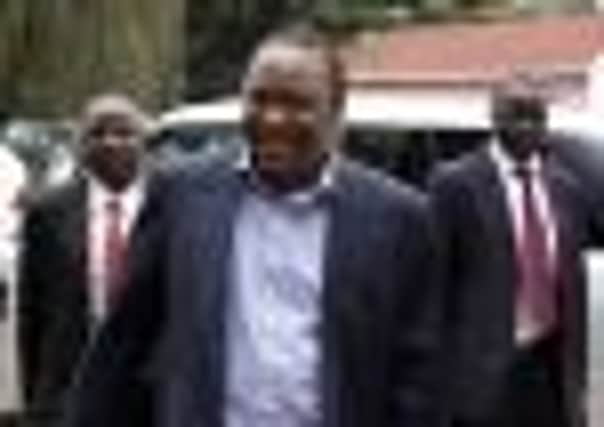Kenya: Five killed in riots after Kenyatta decision


Youths in Nairobi’s slums were still trying to protest the Supreme Court’s ruling against prime minister Raila Odinga’s challenge to the validity of Mr Kenyatta’s win, Nairobi police officials said last night.
At least three people rioting in Nairobi’s Dandora slum were shot dead by police on Saturday, police said, bringing to five the number of people killed in post-election violence since the court’s verdict was given on Saturday. Two people were killed and five seriously injured on Saturday in riots in Kisumu, Mr Odinga’s hometown, said Ole Metito, police chief for Nyanza province.
Advertisement
Hide AdAdvertisement
Hide AdThe incidents on Saturday threatened to disrupt the peace across most of Kenya, which five years ago degenerated into deadly violence stemming from a disputed election. But police said the heavy presence of forces yesterday in trouble-spots – especially slum areas where many of Mr Odinga’s supporters live – was likely to deter protesters still angry over Mr Kenyatta’s court victory.
An unexploded bomb was discovered inside a minibus at a Nairobi bus stop yesterday, police said.
“There is tension obviously, but with the deployment of officers we have done we don’t anticipate anything,” said Moses Ombati, the deputy police chief for Nairobi.
Although Mr Odinga accepted the court’s decision, some of his supporters reacted angrily to his defeat, taking to the streets and engaging the police in running battles.
“There was chaos in places where people were throwing stones. Now we have officers monitoring the general situation,” police chief Metito said.
Mr Kenyatta, who is to be sworn in on 9 April, said on Saturday that he would be a president for all Kenyans and urged them to move past the election and build a nation “at peace with itself.”
The 4 March election was described by many as the most complicated in Kenya’s history. It pitted Mr Kenyatta against Mr Odinga, whose disputed loss in the 2007 election triggered violence that killed more than 1,000 people and displaced hundreds of thousands. Mr Kenyatta faces criminal charges at the International Criminal Court for allegedly encouraging that violence, the reason many western governments have said they may have limited contact with Kenya’s new president. His win may complicate Kenya’s relationship with the United States, which had warned of “consequences”. The White House on Saturday congratulated him and urged Kenyans “to peacefully accept the results of the election.”
Mr Kenyatta, who has promised to cooperate with the ICC, will become the second sitting African president to face charges at The Hague. William Ruto, his running mate, who is set to become Kenya’s deputy president, faces similar charges. Both men deny any wrongdoing.
Advertisement
Hide AdAdvertisement
Hide AdUnlike after the 2007 election, which degenerated into tribe-on-tribe violence, Kenya has been largely peaceful following these elections.
Mr Odinga charged the presidential election was “tainted” by irregularities. His lawyers alleged in court that the electoral commission boosted Mr Kenyatta’s numbers at some polling stations, helping him to avoid a runoff vote with Odinga. According to official figures, Mr Kenyatta avoided a runoff by about 8,000 votes.